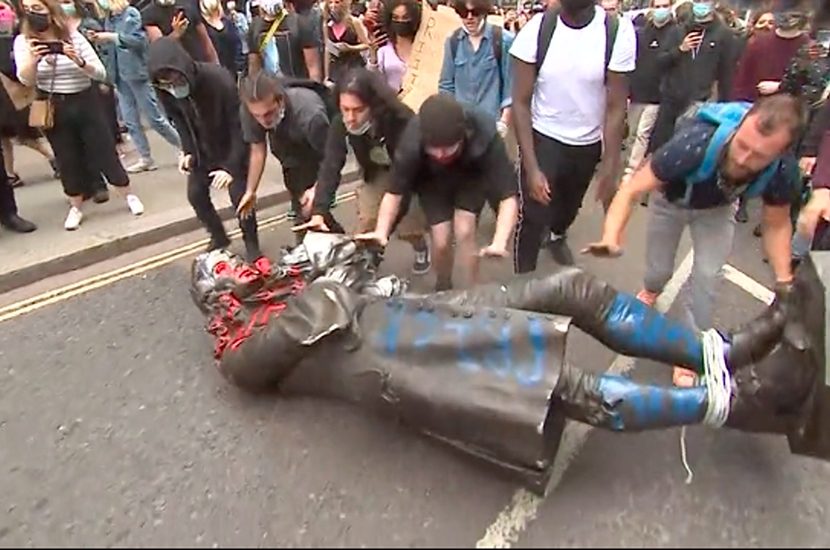Hong Kong’s success
Sir: Carl Heneghan and Tom Jefferson are right to compare the UK’s Covid-19 response with Hong Kong’s (‘Who cared?’, 6 June). We write as UK-trained emergency physicians, who have worked as specialists in both the UK and Hong Kong. In many ways, the economic and healthcare contexts are similar. The majority of care is delivered at minimal cost to the patient at the point of care; we share similar per capita GDP and human development indices. But we responded very differently to Covid.
In Hong Kong, initially all patients with possible Covid were admitted to hospital until they tested negative. No one with suspected Covid was transferred to care homes. Healthcare staff, patients and the public routinely wear surgical masks.
In the UK, suspected Covid patients were routinely discharged straight back into the community without testing. Intensive care support was only requested for those requiring high-flow oxygen, which in itself can cause Covid transmission. Provision of PPE has been patchy, even in hospitals.
These are of course not the only factors involved. But the truth is that Hong Kong faced Covid several weeks before the UK. Despite having various opportunities to apply similar measures, the UK did not.
The UK (population 68 million) has had over 40,000 deaths. Hong Kong (population 7.5 million) has had four. When the next wave comes, lessons must be learned from those who have had better outcomes.
Dr Giles N. Cattermole King’s College Hospital NHS Trust
Professor Colin A. Graham Chinese University of Hong Kong
China’s techno-tyranny
Sir: I can only assume that Lord Howell of Guildford’s caricature of the situation in Hong Kong is purposefully disingenuous (Letters, 6 June). ‘Digital grass-roots empowerment’ is no crime and does not need policing. On the contrary, it is the digitisation of the best of democracy. Dismissing the Hongkongers’ struggle as a matter of policing that all countries face is to belittle the techno-tyranny that the Chinese people live under and that the Hongkongers are bravely fighting.
I suppose Lord Howell thinks that the 1.2 million Uyghur Muslims who have been pumped through concentration camps in Xinjiang, some for the ‘crime’ of having WhatsApp on their phone, are simply caught up in the administration of normal policing too? Come off it.
Clarke O’Gara
Salford, Greater Manchester
Glorious rot!
Sir: Julian Glover laments that ‘once we wrote poems when we lost our trees. Now we just watch them rot’ (‘Ashes to ashes’, 13 June). But perhaps that may be a positive experience. We are fortunate in having a two-acre wood, with majestic oaks and beech, ash, sorbus and other species. We had one elm which was clearly infected, in our case probably with honey fungus. This year it gave up the ghost. Lockdown has afforded me more time than usual, so I used dead branches lying around to build a memorial around the deceased tree. Now, its rotting may provide food for thought as well as for insects. In the meantime, the memorial makes quite a comfortable seat.
Charles Hawes
Monmouthshire
Dying thoughts
Sir: I have a healthy British suspicion of philosophy and navel-gazing, but Susan Hill’s ‘Lessons from the dying’ (13 June) made me think about what I would say to a dying person. Fifteen minutes later I was back in the room, having thought more about life, death and faith than I have for years. My views haven’t changed, but it’s good to challenge them once in a while. Please pass on my thanks to Ms Hill.
Bill Young
Petersfield, Hants
Case in point
Sir: Camilla Tominey (‘Case history’, 13 June) attributes the award of MVO for Simon Case to Theresa May. But the Royal Victorian Order is unique among British orders of chivalry in that it is the only one which is in the personal gift of the monarch, and it is awarded for services to the royal household. It follows that Mr Case was created MVO in recognition of his services to the Duke and Duchess of Cambridge.
Jeremy Havard
Chichester, West Sussex
What Bristolians want?
Sir: Matthew Parris draws a parallel between Lady Churchill choosing to burn a picture she owned and a small number of people in Bristol vandalising a statue they did not own (‘A magnificent way to topple a slave trader’, 13 June). There is no parallel. I lived in Bristol for 15 years and worked for five in the Colston Centre, on Colston Street, opposite the Colston Hall, and overlooking the statue of Edward Colston. His history was well known but the majority of Bristolians accepted that the times during which he lived were different, that he did many good works in the city, and that he was an important part of the city’s history. We do not know how many of the people who attacked the statue were from Bristol, and we do not know whether the majority of Bristolians actually want the statue to remain or not. What we do know is that the mob had no right to assume that they were representative of the 463,000 residents.
Robin Morello
Brackley, Northants
Missing the coach
Sir: As a solo traveller for many years, I agree that coach holidays are ideal (Notes on, 6 June). There is a saying that ‘There are no strangers, only friends you haven’t yet met’. This is particularly true of your travelling companions on coach trips. I’m particularly saddened by the demise of Shearings, as I have had a number of happy holidays with them. As Neil Clark so rightly says, summer just won’t be the same without those great big blue coaches thundering up and down the motorways.
John Wadman
Quinton, Birmingham






Comments